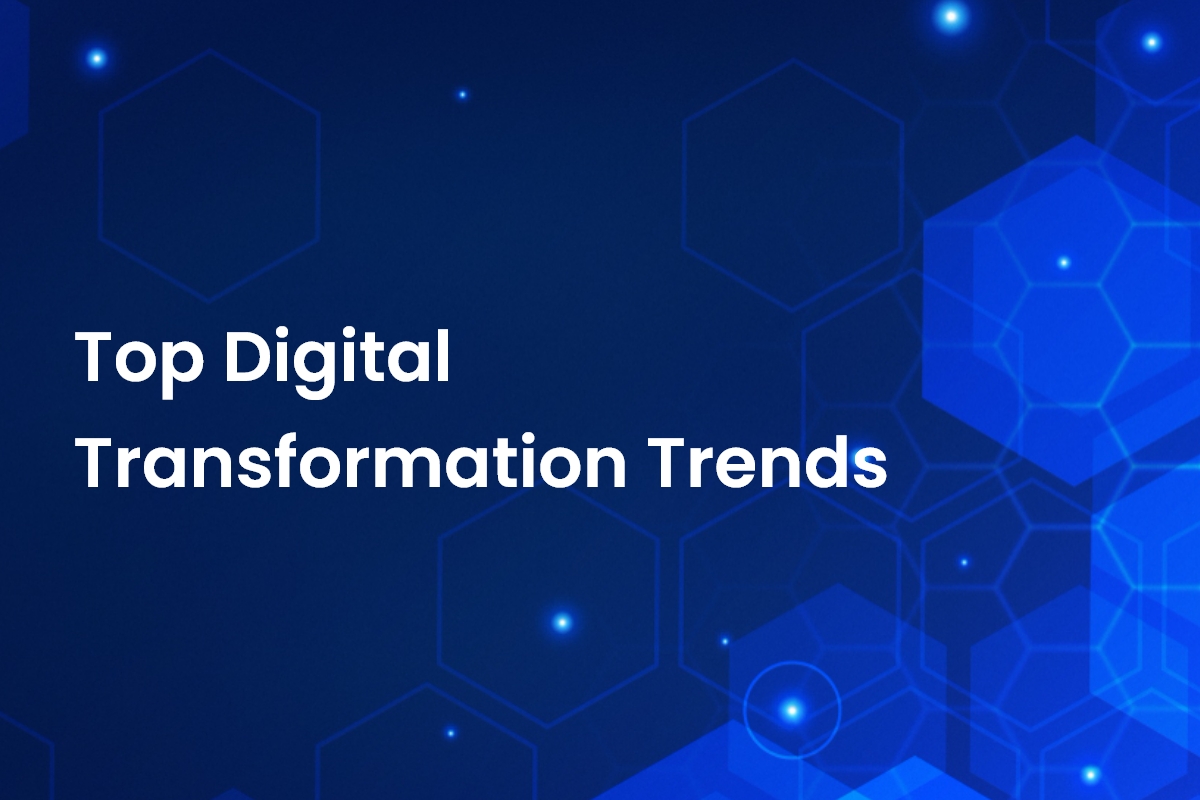The world is constantly evolving, even more so in the digital age. Because of the pandemic, many businesses had to change their plans and move to digital formats. In the post-pandemic era, we expect these changes to stick around and permanently alter our lives for the better with digital transformation.

There is no “completion” for digital transformation it’s an ongoing process. As new technologies develop, companies must stay current with their transformations. Some of the predictions for digital transformation trends in 2022 were accurate, but others have just begun and will continue into 2023.
Digital transformation consulting is more important than ever in helping businesses stay ahead of the competition.
It is essential to have a strong understanding of which digital advancements have the potential to be big in 2023 as we approach closer to the end of the year. These trends, which will assist organizations in developing plans for digital transformation, will significantly impact the future of many businesses.
Top Digital Transformation Trends
Virtual collaboratio
With society’s growing reliance on technology, it’s more important than ever for businesses to keep up with the times and use modern communication methods. The global pandemic has only accelerated this trend, as people must find ways to stay connected virtually. This shift is here to stay, so organizations must be proactive to remain relevant and afloat amidst all the change.
Not only will work flexibility stay in place to improve inclusivity, productivity, and modernization, but 63% of organizations are already utilizing the hybrid work model. Virtual training sessions are becoming more common and accessible for employees.
We can be sure that virtual meetings and collaborations will become more common in the future, especially with the help of productivity tools and platforms for virtual events. Digital transformation services can help businesses better understand how to implement virtual events and maximize performance.
Automation for efficiency
Automation has been slowly being used worldwide for years, but by 2023, it will be a key part of the digital transformation trend. Automation helps streamline processes and improve efficiency, saving businesses time and money.
Companies are turning to automation to save money and increase efficiency in economic uncertainty. Investing in digital transformation allows companies to grow more effectively despite difficult circumstances.
The global skills shortage will last until 2023, so businesses must invest in automation to expand their workforce and open up new capabilities.
No-Code & Low-Code development platforms
In 2023, no-code development platforms are estimated to continue growing exponentially due to the rise of citizen developers desiring digitalization. Organizations could use these emerging trends to improve the customer experience without overhauling their existing architecture.
In other words, SaaS is a booming industry and an excellent way for enterprises to expand their business worldwide. Companies don’t sell software in the form of physical copies or licenses. Instead, they offer subscriptions, which allow them to get paid over time. Consequently, they can get paid immediately. In addition, it permits them to concentrate more on delivering worth rather than haggling with customers and amassing payments to maintain their enterprise (not everyone has access to venture capital).
Edge computing
Since the beginning of digital transformation, cloud computing has been an essential part of the scene. However, “edge computing” is quickly becoming a buzzword to watch out for. Edge computing stores and processes data on local servers or devices instead of in the cloud, which can help reduce latency and speed up response times. This shift towards local processing opens up new business opportunities, such as faster decision-making and more efficient operations.
Edge computing is expected to be a big part of digital transformation in the long run. It will help businesses be more efficient and save money. As more companies start using this technology, they will be able to meet customer needs better and get an edge over their competitors. Many digital transformation services are already beginning to incorporate edge computing into their solutions.
Cybersecurity
Because data is becoming increasingly valuable, businesses must have dependable cybersecurity. By eliminating risks and keeping business data safe, businesses can take advantage of the opportunities that technology gives them instead of always being at risk. With the help of digital transformation consulting, businesses can create cybersecurity plans that align with their business goals and protect their assets.
Frictionless digital experience
Digital transformation is about technology and processes and creating a frictionless digital experience for customers. Customers now expect to find and access the services they need quickly and easily. Companies use customer data analytics, predictive analytics, AI-powered chatbots, and other technologies to create personalized experiences that interest customers.
In the years to come, a digital experience with no hiccups will become increasingly important to bring in new customers and give them an unforgettable experience. With technology becoming more sophisticated comes the heightened need for a straightforward but still engaging interface in our digitized world.
Augmented reality
AR technology is what makes online shopping feel more natural and immersive. Rather than being a completely digital experience, AR brings digital objects into the real world by overlaying them on top of existing scenery. This progression of AR apps in different areas will allow companies to set themselves apart and give customers an entirely new experience.
Sustainability across sectors
Because environmental sustainability is such a significant issue today, ESG propositions will continue to be valuable in the future.
To improve the world for ourselves and future generations, businesses and governments must prioritize digital transformation by adopting sustainable business models, reducing emissions, and ensuring a low environmental footprint.
The Way Forward
Digital transformation is not a one-time event; it’s an ongoing process of discovery, experimentation, and adaptation. The best way for businesses to stay ahead of the competition is to embrace change and use technology to create better customer experiences. There are so many possibilities with digital transformation, from AI-powered customer service to cyber security measures that protect businesses from theft and data breaches. Investing in digital transformation will help companies stay competitive and profitable in the long run.